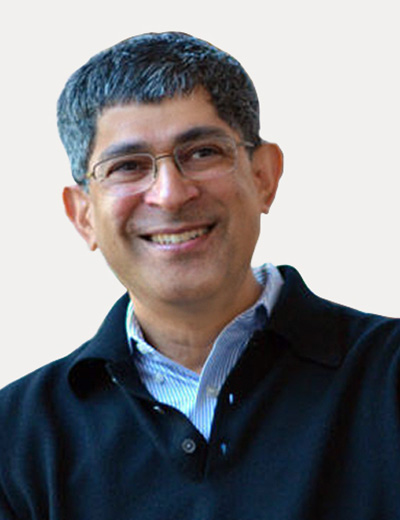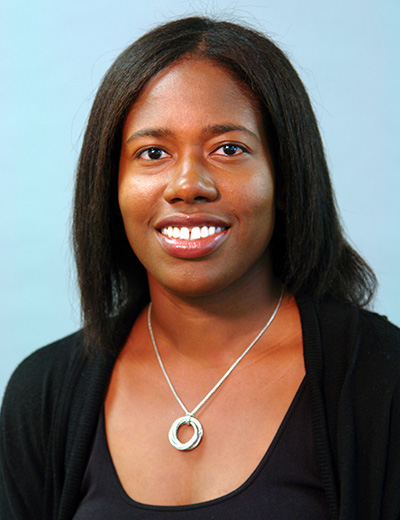Kuriyan to take over as dean; Johnson wins Pew scholarship
Kuriyan to take over as dean at Vanderbilt med school
John Kuriyan, a distinguished professor of molecular and cell biology at the University of California, Berkeley, and a Howard Hughes Medical Institute investigator, has been named the next dean of the Vanderbilt University School of Medicine Basic Sciences.

Kuriyan succeeds Lawrence Marnett, also an ASBMB member, who was named founding dean of the basic sciences school in 2016 after the university separated from Vanderbilt University Medical Center.
After Kuriyan takes over on Jan. 1, Marnett plans to take a sabbatical and then return to the faculty. "I am excited for John's leadership," Marnett said in a press release. "He will be a beacon for attracting the very best biomedical scientists to campus."
Kuriyan's research focuses on conformational changes and post-translational modifications that switch on activity in signaling molecules involved in signal transduction. His lab has studied autophosphorylation, subunit exchange, redox changes and dimerization in proteins including tyrosine kinases, such as Src and Btk, the calcium-activated kinase CaMKII, and various proteins involved in signaling downstream of receptor tyrosine kinases including the Ras activator SOS. They previously studied the structures of proteins involved in DNA replication, including polymerase sliding clamp complexes. The lab has a whimsical tradition of illustrating their articles with art in the style of international postage stamps.
Kuriyan grew up in India and studied chemistry for two years at the University of Madras before transferring to Juniata College for his bachelor's degree. He earned a Ph.D. in physical chemistry at the Massachusetts Institute of Technology, and continued to work with graduate advisors Martin Karplus and Gregory Petsko during a postdoctoral fellowship at Harvard University before starting as a professor at Rockefeller University.
Kuriyan is a member of the National Academy of Sciences and the National Academy of Medicine, a fellow of the American Academy of Arts and Sciences and a foreign member of the Royal Society. Among many honors, he received the ASBMB-Merck award in 2009. He is editor-in-chief of the journal Protein Science.
Johnson wins Pew scholarship
Elizabeth Johnson, an assistant professor at Cornell University, has been named to the newest class of Pew Biomedical Scholars. The 22 scholars were chosen from almost 200 applicants.

Johnson studies how the fats in human milk interact with the infant microbiome to support the generation of beneficial metabolites. Her lab also is interested more broadly in interactions between the diet, the microbiome and the host. They developed a method called BOSSS that uses click chemistry to fluorescently label metabolites derived from a certain dietary source, and then isolates fluorescent microbes to identify specific strains that interact with specific dietary lipids. Using this approach, Johnson's lab recently identified the bacterial enzyme that converts cholesterol to cholesterol-3-sulfate, which can bind to DNA methyltransferases and influence inflammatory status.
Johnson was an undergraduate at Spelman College and earned her Ph.D. at Princeton University, studying RNA dynamics to understand how cells survive quiescence, or cell cycle arrest. She was a postdoc at Cornell and in Ruth Ley’s lab at the Max Planck Institute for Developmental Biology, where she studied sphingolipid production by gut microbes.
The Pew Scholars Program in the Biomedical Sciences provides funding relevant to advancing human health to investigators in their first few years at the assistant professor level by making grants to academic institutions to support the scholars' independent research.
Enjoy reading ASBMB Today?
Become a member to receive the print edition four times a year and the digital edition monthly.
Learn moreGet the latest from ASBMB Today
Enter your email address, and we’ll send you a weekly email with recent articles, interviews and more.
Latest in People
People highlights or most popular articles

2026 ASBMB election results
Meet the new Council members and Nominating Committee member.

Simcox wins SACNAS mentorship award
She was recognized for her sustained excellence in mentorship and was honored at SACNAS’ 2025 National Conference.

From humble beginnings to unlocking lysosomal secrets
Monther Abu–Remaileh will receive the ASBMB’s 2026 Walter A. Shaw Young Investigator Award in Lipid Research at the ASBMB Annual Meeting, March 7-10 in Washington, D.C.

Chemistry meets biology to thwart parasites
Margaret Phillips will receive the Alice and C. C. Wang Award in Molecular Parasitology at the ASBMB Annual Meeting, March 7-10 in Washington, D.C.

ASBMB announces 2026 JBC/Tabor awardees
The seven awardees are first authors of outstanding papers published in 2025 in the Journal of Biological Chemistry.

Decoding how bacteria flip host’s molecular switches
Kim Orth will receive the Earl and Thressa Stadtman Distinguished Scientists Award at the ASBMB Annual Meeting, March 7–10, just outside of Washington, D.C.
